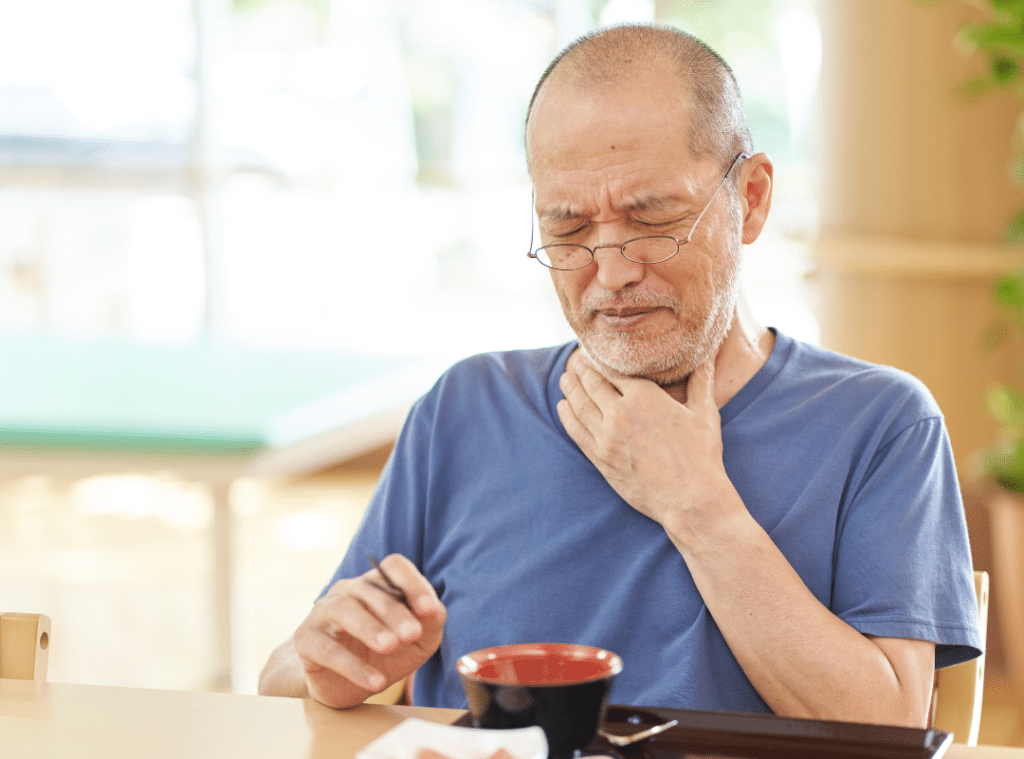Isn’t it troubling how a simple meal can become an intimidating challenge for many elderly individuals? At Westmont of Santa Barbara, we understand that you may notice your loved ones are eating less, but understanding the root causes can be complex. Factors like health issues, emotional distress, and physical limitations often play a role in appetite loss. Yet, recognizing these challenges opens the door to effective solutions that can greatly improve their nutrition and quality of life. So, what steps can you take, alongside Westmont of Santa Barbara, to guarantee they receive the nourishment they need?
Understanding Appetite Loss
Many older adults experience a decline in appetite, which can be concerning for both them and their caregivers. This lack of appetite in elderly people often stems from a combination of physiological changes, medical conditions, and psychological influences.
As we age, our bodies require less energy, which can lead to reduced hunger. Additionally, chronic illnesses, depression, or cognitive decline can further complicate eating habits, making it crucial for caregivers to be aware of these signs.
You might notice that your loved one struggles with swallowing or experiences rapid weight loss. These signs should prompt a discussion with a healthcare provider, as they can greatly impact overall health and increase mortality risk. Proper nutrition supports overall health and can help mitigate some of the effects of appetite loss.
It’s important to create a supportive mealtime environment that encourages eating, perhaps by offering smaller, more frequent meals or enhancing flavors with herbs and spices.
Health and Physiological Factors
Health and physiological factors profoundly influence appetite in elderly individuals. As you age, changes in your body, such as hormonal fluctuations and decreased sensory perception, can greatly affect your desire to eat. Many seniors experience fatigue, which often accompanies loss of appetite in elderly populations. This fatigue may stem from chronic illnesses, medications, or even depression, each of which can diminish your interest in food.
Moreover, your digestive system slows down with age, making it harder for you to process meals. This can lead to a reduced appetite and subsequent weight loss, which poses serious health risks. Understanding these factors is essential for caregivers and loved ones seeking to support you in maintaining proper nutrition. Additionally, good nutrition can help reduce chronic disease risk and improve overall well-being.
To counteract these challenges, consider creating an inviting mealtime atmosphere, offering smaller, nutrient-dense meals more frequently, and ensuring hydration. Engaging in gentle physical activity can also help stimulate appetite.
Common Causes of Appetite Decline
Various factors can contribute to appetite decline in older adults, making it vital to understand these common causes. Recognizing these issues helps you better support your loved ones in maintaining their nutritional health.
Here are some key factors to reflect on:
- Dehydration: Many seniors are under-hydrated, which can lead to decreased appetite.
- Loneliness and Depression: Emotional well-being considerably affects eating habits; isolation can lead to meal skipping.
- Difficulty Chewing or Swallowing: Dental problems or certain medications can make eating uncomfortable.
- Loss of Taste and Smell: Aging often diminishes sensory perception, making food less appealing.
Understanding these common causes of appetite decline is essential. They can stem from physiological changes, medical conditions, or psychological factors. Sleep disturbances, such as insomnia in seniors, can also negatively impact appetite and overall health.
By identifying these underlying issues, you can create a supportive environment encouraging your loved ones to eat well. It’s not just about food; it’s about fostering relationships and creating enjoyable mealtime experiences.
Being attentive to their needs can make a notable difference in their health and happiness.

Nutritional Importance and Strategies
Maintaining proper nutrition is essential for the well-being of older adults, as it supports their overall health and helps prevent chronic illnesses. Proper nutrition boosts immune function and enhances energy levels, making it important to address any loss of appetite. Implementing effective strategies can greatly improve dietary intake. Assisted living facilities often provide tailored dietary plans to meet individual nutritional needs.
Here are some practical strategies to stimulate appetite:
| Strategy | Description | Benefits |
| Smaller, Frequent Meals | Offer meals in smaller portions throughout the day. | Easier digestion and increased intake. |
| Hydration | Guarantee adequate fluid intake to prevent dehydration. | Supports appetite and overall health. |
| Social Engagement | Encourage shared meals with family or friends. | Enhances enjoyment and encourages eating. |
For the treatment of loss of appetite in elderly individuals, consider incorporating flavorful herbs, spices, and a variety of textures in meals. Creating a pleasant mealtime environment can further enhance their dining experience. Remember, addressing any underlying health issues is essential, and ongoing support from caregivers can foster better nutritional habits. By employing these compassionate strategies, you can help older adults enjoy the benefits of proper nutrition.
Professional Guidance and Support
Navigating the complexities of appetite loss in older adults can be challenging, but professional guidance and support are essential to addressing these issues effectively.
Engaging with healthcare professionals—like dietitians, doctors, and nutritionists—can provide the tailored strategies needed to enhance nutrition and well-being.
Here are some key aspects of professional guidance and support:
- Personalized Nutrition Plans: Professionals can develop meal plans that cater to individual preferences and dietary restrictions.
- Monitoring Health Conditions: Regular check-ups can help identify and manage any underlying medical issues affecting appetite.
- Nutritional Education: Understanding the importance of balanced nutrition empowers both caregivers and seniors to make informed food choices.
- Emotional Support: Addressing psychological factors, such as loneliness and depression, can greatly improve appetite and eating habits.
In summary, addressing appetite loss in the elderly isn’t just about food; it’s about nurturing their overall well-being. At Westmont of Santa Barbara, we believe that every meal shared can ignite joy and connection, transforming mealtime from a chore into a cherished ritual. By understanding the underlying causes and implementing supportive strategies, you can help restore not just their appetite, but their zest for life. Together, let’s make certain our loved ones don’t just eat to survive but thrive in their golden years. For more information or assistance, please contact us at 805-845-4921.
Discover the level of care you or your family member requires. What Level of Care Do You Need?
Frequently Asked Questions on Appetite and Nutrition in the Elderly
What does it mean when an elderly person has no appetite?
A lack of appetite in an elderly person can indicate physical, emotional, or medical issues. Common causes include medication side effects, chronic illnesses, depression, or changes in taste and smell. If the loss of appetite persists, it’s important to consult a healthcare provider.
Do we lose our appetite as we age?
Yes, it’s common for appetite to decrease with age due to slower metabolism, hormonal changes, and diminished senses of taste and smell. However, a significant or sudden decrease in appetite should be evaluated to rule out underlying health concerns.
Why do I have no appetite but feel tired all the time?
Loss of appetite paired with fatigue could be due to factors such as poor nutrition, anemia, chronic illness, or emotional stress. It’s advisable to seek medical attention to determine the root cause and address any potential deficiencies or health issues.
What happens when the elderly don’t eat enough?
When the elderly don’t eat enough, they can become malnourished, which leads to weight loss, weakened immunity, and reduced muscle strength. This increases the risk of infections, falls, and slower recovery from illness or injuries.
What causes sudden loss of appetite in the elderly?
Infections, new medications, gastrointestinal issues, or emotional distress such as grief or depression can cause a sudden loss of appetite in the elderly. In some cases, it may signal a more serious condition like cancer or dementia, requiring prompt medical evaluation.








